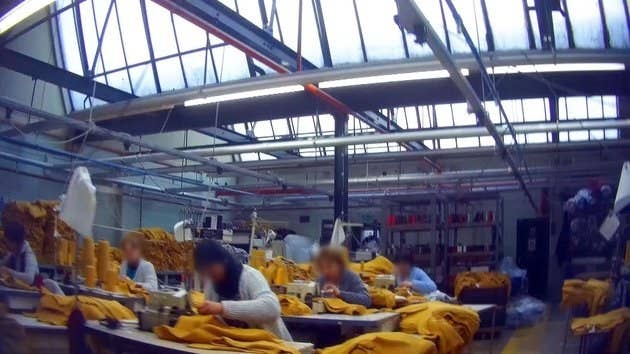There are just nine inspectors responsible for upholding workers' rights in the entire UK recruitment sector, MPs heard during a committee inquiry on Tuesday.
Sir David Metcalf, who was appointed earlier this year by the government as the UK's first director of labour market enforcement, told MPs that the Employment Agency Standards Inspectorate (EAS), which has a relatively small budget and relatively few staff, was the "Cinderella" of employment regulators.
The EAS is responsible for working with recruitment agencies, which can supply workers into any sector, to ensure compliance with employment rights, particularly for "vulnerable agency workers" who may have wages unlawfully deducted or who are not paid the minimum wage.
There is a growing number of agency workers in the UK, with projections for that figure to hit 1 million by 2020. Agency work is a popular type of employment in many sectors, from warehousing – as seen with Sports Direct and Asos – to the construction industry and care work.
"The employment agencies body is very much the 'Cinderella' – they only have a half a million pound budget and 11 staff, [with] only nine inspectors, and there's 18,000 employment agencies," Metcalf, who reports into the Home Office and into the business department, told the committee.
Metcalf has been tasked with overseeing a new strategy for the UK's three main employment enforcement bodies, including the establishment of a shared intelligence hub. He is expected to report his recommendations in 2018.
These bodies include the EAS inspectorate, the Gangmasters and Labour Abuse Authority (GLAA), which can investigate labour abuse in all aspects of UK business, and the unit at HMRC responsible for minimum wage compliance.
In comparison with EAS, Metcalf said, HMRC had a budget of £25 million and the GLAA had a budget of £7 million, "and we will be looking at the budget."
The joint committee of MPs are taking evidence on recommendations put forward by former Tony Blair adviser Matthew Taylor in a government-commissioned review into worker protections, particularly in the gig economy.
Metcalf also told the committee that fines for noncompliance did not go far enough.
"If you take HMRC and the minimum wage," he said, "there's 1.3 million firms with employees – they took 2,600 [noncompliance] cases last year. That means the average firm could expect an investigation once every 500 years. Well, that's hardly an incentive to comply."
He added: "Currently the maximum fine is twice the wage arrears... Last year the average was £110. If you have not got the resources to take more cases the penalties have to be higher."
He said sectors of particular concern included care work, construction, carwashes, and cleaning.

Metcalf also told the committee how "one of the themes" of his forthcoming strategy "will be to deal with supply chains" where abuse was prevalent.
He used the example of garment workers in Leicester who have been found to earn less than the minimum wage for stitching clothes for major brands after work was illegally subcontracted out without permission of the business.
Of retailers, he said: "They won't be expected to police it entirely but there is a tendency to perhaps sometimes rather wash their hands of what goes on further down the supply chain."
He said in his strategy he would explore recommending other methods of tackling the issue, such as putting an embargo on goods being released for sale before suspected supply chain abuses were dealt with, and holding brands "jointly liable" for labour abuses in their wider supply chain.
This would, he said, give retailers an "incentive to make sure their supply chain is compliant".

